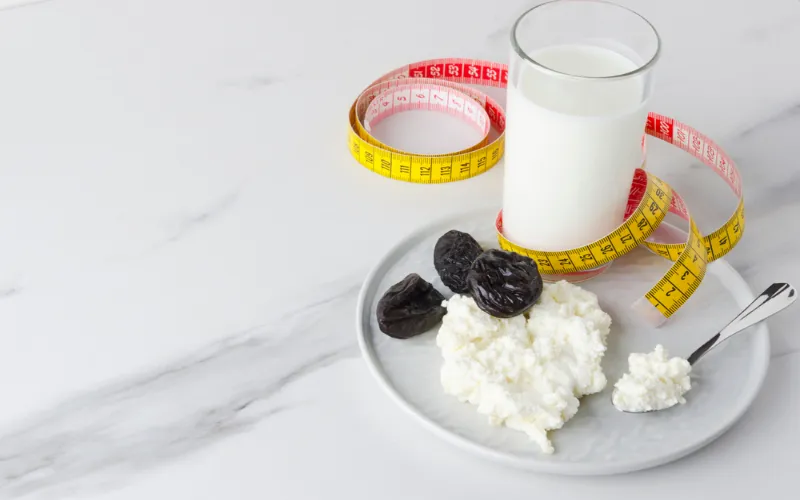In recent years, probiotics have risen to prominence in health and wellness. Not only are they recognized for their integral role in maintaining a balanced gut, but various research also hints at the intricate connection between these live cultures and weight loss.
What are Probiotics?
Probiotics, often called ‘good bacteria,’ counteract the ‘bad bacteria’ that can cause harm when their numbers grow unchecked. These beneficial bacteria thrive in our intestines, aiding food digestion, warding off infections, and more.
Key types of probiotics include Lactobacillus and Bifidobacterium, each with unique properties and benefits. These microbes are essential to gut flora components supporting gut and systemic health.
Understanding the Human Gut
Our gut is home to a complex ecosystem rich in diverse microorganisms known as the microbiota. This dynamic community, which includes bacteria, yeast, and other microorganisms, plays a pivotal role in our overall well-being. An imbalance, too many bad bacteria and not enough good ones—can disrupt our immune system, metabolism, and mental health.
The Gut-Weight Connection
An individual’s metabolism, the process through which our body converts food into energy, can be influenced significantly by the composition of the gut microbiome. The gut-brain axis, a bidirectional communication system between our intestines and brain, also plays a key role in regulating appetite, potentially impacting body weight.
How Probiotics Aid in Weight Loss
A balanced gut flora ensures optimal digestion, extracting essential nutrients from our food while minimizing unwanted fat storage—a lesser-known but crucial relationship. Certain strains of probiotics have been shown to influence hunger-regulating hormones, offering potential benefits for those seeking weight management solutions.
Scientific Evidence: Studies Supporting the Probiotic-Weight Loss Link
Recent clinical trials offer a compelling glimpse into the weight-loss potential of probiotics. Studies show that specific probiotic strains can effectively assist people in shedding excess pounds. Importantly, research suggests the sustainability of weight loss achieved with probiotics, spotlighting its long-term benefits.
Choosing the Right Probiotic for Weight Management
Selecting an effective probiotic requires an understanding of strain-specific benefits. Not all probiotics offer weight loss benefits. Further, the dosage matters: knowing the right amounts can make the difference between success and stasis.
Integrating Probiotics into Your Diet
Several foods are naturally rich in probiotics. Yogurt, fermented vegetables, and certain traditional dishes combine these beneficial bacteria. However, supplements become a viable option for those who find it challenging to derive adequate amounts from food. Weighing the pros and cons of supplements against natural food sources is vital for informed decision-making.
Potential Side Effects and Considerations
Embarking on a probiotic regimen isn’t without its concerns. Some people might experience changes in their digestion, allergies, or inflammation. Interestingly, prebiotics—non-digestible fibers that nourish our good bacteria—are the unsung heroes that support probiotic functions and deserve equal attention.
Beyond Weight: Other Health Benefits of Probiotics
Beyond aiding in weight loss, probiotics have been shown to bolster immunity, combat infections, and even have implications for mental health, revisiting the gut-brain axis. Their benefits, thus, span a spectrum much wider than traditionally believed.
The Mechanics of Probiotic Action
Understanding the precise mechanics of how probiotics function can further clarify their role in weight loss. These live cultures help restore a balanced intestinal flora, creating an environment where nutrients are absorbed more efficiently, and harmful microbes are kept at bay.
Environmental Factors and Gut Health
Our environment, from the food we consume to the air we breathe, can influence the health of our gut microbiome. Pesticides in foods, pollution in the air, and even stress can disrupt the balance. Incorporating probiotics into one’s diet can act as a countermeasure, promoting a robust gut environment.
The Immune System and Probiotics
A significant proportion of the body’s immune system resides in the gut. Probiotics play an instrumental role in modulating immune responses. A healthy gut flora ensures a more responsive and balanced immune system, indirectly assisting in weight management by reducing inflammation—a known factor in obesity.
Children and Probiotics: Setting the Stage Early
Children’s gut health is paramount, as early microbial imbalances can lead to weight and health issues in adulthood. Introducing probiotic-rich foods early on can foster a healthy microbiome, laying a foundation for lifelong health and weight management.
Evolving Research and the Road Ahead
While current studies provide invaluable insights into the probiotics-weight connection, ongoing research continues to unearth more profound revelations. The future holds the potential for personalized probiotic regimens tailored to individual needs, further revolutionizing weight management strategies.
Busting Myths: Common Misconceptions
Many myths surround probiotics. For instance, while some believe any yogurt off the shelf provides the necessary probiotics, only those labeled with “live and active cultures” offer genuine benefits. Discarding fact from fiction is crucial to making the most of what probiotics offer.
The Global Perspective: Probiotics Across Cultures
Different cultures have long incorporated naturally fermented foods rich in probiotics. From Kimchi in Korea to Kefir in the Caucasus, understanding these global practices can offer diverse ways to integrate probiotics into one’s diet.
Conclusion
With their multifaceted benefits, probiotics undeniably play a crucial role in weight management. Their potential, however, transcends weight and touches various facets of holistic health. The future, illuminated by ongoing research, is promising for these microorganisms.
Do antibiotics impact the effectiveness of probiotics?
Yes, antibiotics can diminish gut bacteria, including probiotics. It’s recommended to consult a doctor about probiotic intake post-antibiotic treatment.
Are there vegan sources of probiotics?
Absolutely! Foods like kimchi, miso, tempeh, and some plant-based yogurts are rich in probiotics and are vegan-friendly.
Can you overdose on probiotics?
While an overdose is rare, excessive intake can lead to digestive discomfort. Always adhere to recommended dosages or consult a nutritionist.




